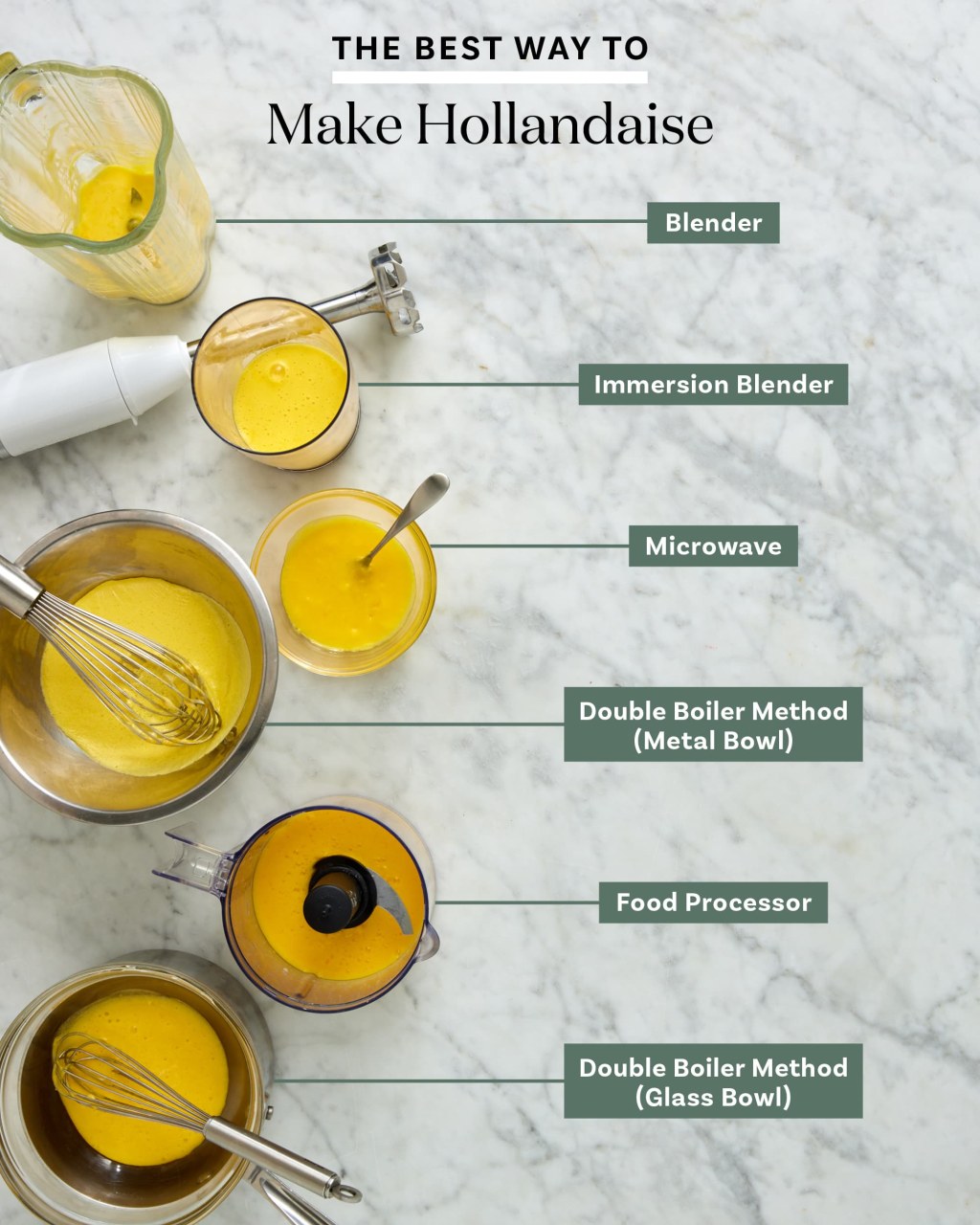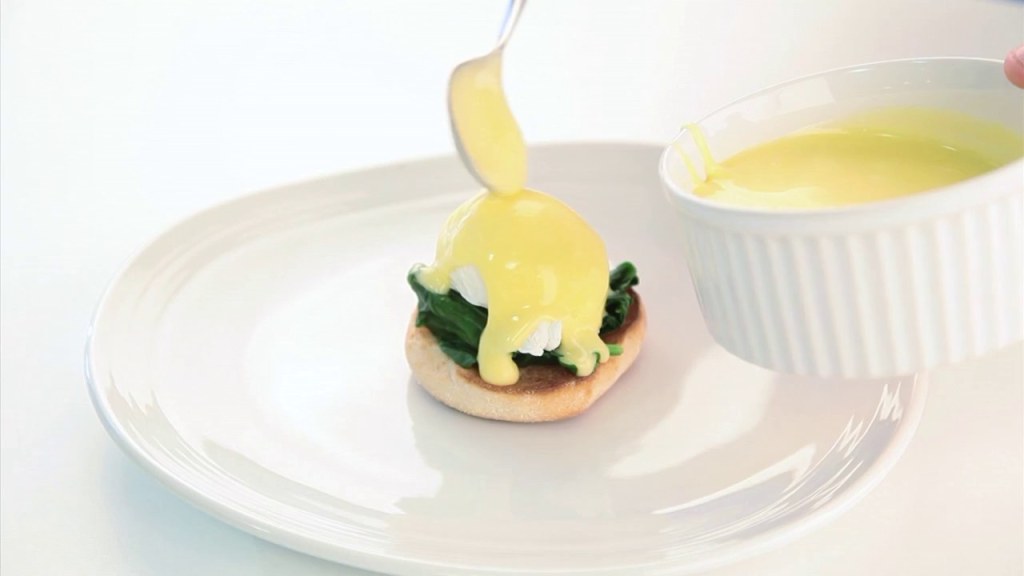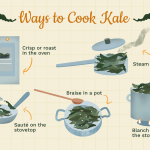Master The Art Of Hollandaise Sauce: Uncover The Secrets To Perfect Cooking Techniques!
Cooking Techniques for Hollandaise Sauce
Introduction
Dear Readers,
Welcome to our article on cooking techniques for hollandaise sauce! Hollandaise sauce is a classic French sauce that is known for its rich and creamy texture. It is often used to accompany dishes like eggs benedict or as a topping for vegetables and fish. In this article, we will explore the various techniques to make hollandaise sauce and provide step-by-step instructions to help you achieve the perfect consistency every time. So, whether you are a seasoned chef or a beginner in the kitchen, this article will guide you in mastering the art of making hollandaise sauce. Let’s dive in!
2 Picture Gallery: Master The Art Of Hollandaise Sauce: Uncover The Secrets To Perfect Cooking Techniques!


What is Hollandaise Sauce?
🥚 Hollandaise sauce is a French sauce made with egg yolks, butter, lemon juice, and seasonings. It is a smooth and velvety sauce that has a rich and tangy flavor. The sauce is known for its emulsified texture, which is achieved by slowly adding melted butter to egg yolks while whisking continuously. This creates a thick and creamy sauce that is perfect for drizzling over various dishes.
Who Invented Hollandaise Sauce?

Image Source: apartmenttherapy.info
🗼 Hollandaise sauce is believed to have originated in France. It is named after the country’s capital, Hollandaise. The exact inventor of the sauce is unknown, but it is believed to have been created in the 17th century. Hollandaise sauce is considered one of the mother sauces in French cuisine, along with other classics like béchamel and velouté.
When to Use Hollandaise Sauce?
⏰ Hollandaise sauce is incredibly versatile and can be used in a variety of dishes. It is commonly served with eggs benedict, where it adds a creamy and tangy element to the dish. The sauce is also a popular choice for topping vegetables such as asparagus or artichokes. Additionally, hollandaise sauce can be used as a base for other sauces or as a dipping sauce for seafood. The possibilities are endless!
Where Can You Find Hollandaise Sauce?
🌍 Hollandaise sauce can be found in various restaurants and cafes that serve dishes with a French or European influence. It is also commonly featured in brunch menus and upscale dining establishments. However, if you prefer making your own hollandaise sauce, you can easily find the ingredients in your local grocery store. Homemade hollandaise sauce allows you to customize the flavors to your liking and ensures freshness.

Image Source: ytimg.com
Why Should You Learn to Make Hollandaise Sauce?
❓ Learning to make hollandaise sauce is a valuable skill for any home cook. By mastering this classic French sauce, you can elevate your culinary repertoire and impress your friends and family. Homemade hollandaise sauce offers a superior taste compared to store-bought alternatives. Additionally, making hollandaise sauce from scratch allows you to control the ingredients and avoid any preservatives or artificial additives that may be present in pre-made versions.
How to Make Hollandaise Sauce?
🔪 Making hollandaise sauce requires precise techniques to ensure a smooth and creamy result. Here is a step-by-step guide to making hollandaise sauce:
Step 1: Gather Your Ingredients
Before you begin, gather the following ingredients: egg yolks, unsalted butter, lemon juice, salt, and cayenne pepper. Having all the ingredients measured and ready will make the process smoother.
Step 2: Create a Double Boiler
Fill a saucepan with a few inches of water and bring it to a simmer. Place a heatproof bowl on top of the saucepan, ensuring that the bottom of the bowl does not touch the water. This creates a gentle and indirect heat source for the sauce.
Step 3: Whisk the Egg Yolks
In the heatproof bowl, whisk the egg yolks until they become thick and pale yellow. This process helps in achieving the right consistency for the sauce.
Step 4: Slowly Add Melted Butter
Melt the unsalted butter in a separate saucepan over low heat. Once melted, remove from heat and let it cool slightly. While continuously whisking the egg yolks, slowly pour in the melted butter in a steady stream. This gradual addition helps in creating a smooth emulsion.
Step 5: Add Lemon Juice and Seasonings
After incorporating all the butter, add lemon juice, salt, and a pinch of cayenne pepper to the sauce. Whisk until well combined. The lemon juice adds a tangy flavor to balance the richness of the sauce, while the salt and cayenne pepper enhance the overall taste.
Step 6: Serve and Enjoy
Your hollandaise sauce is now ready to be served! Drizzle it over your favorite dishes, such as eggs benedict, vegetables, or fish. The sauce can be stored in a warm place for a short period, but it is best consumed immediately for optimal taste and texture.
Advantages and Disadvantages of Hollandaise Sauce
Advantages:
1. 🌟 Adds a creamy and tangy flavor to dishes.
2. 🌟 Versatile and can be used in various recipes.
3. 🌟 Elevates the taste of eggs benedict and other breakfast dishes.
4. 🌟 Can be customized with additional seasonings and herbs.
5. 🌟 Homemade hollandaise sauce allows for control over ingredients and freshness.
Disadvantages:
1. ⚠️ Requires precise techniques to avoid curdling or separation.
2. ⚠️ Not suitable for individuals with dietary restrictions due to high fat and cholesterol content.
3. ⚠️ Limited shelf life and best consumed immediately for optimal taste.
4. ⚠️ Can be time-consuming to make from scratch.
5. ⚠️ May not be suitable for those with egg allergies.
Frequently Asked Questions (FAQ)
1. Can I reheat hollandaise sauce?
Yes, hollandaise sauce can be reheated. However, it is best to reheat it slowly over low heat, whisking continuously to prevent curdling. Be cautious not to overheat the sauce, as it can cause the butter to separate.
2. Can I freeze hollandaise sauce?
It is not recommended to freeze hollandaise sauce as it can affect the texture and consistency. The sauce is best enjoyed when freshly made.
3. How do I fix curdled hollandaise sauce?
If your hollandaise sauce has curdled or separated, there are a few ways to fix it. One method is to whisk a small amount of hot water into the sauce, a few drops at a time, until it becomes smooth again. Another option is to start over with a new batch and slowly incorporate the curdled sauce into it while whisking vigorously.
4. Can I make hollandaise sauce without butter?
Butter is an essential ingredient in hollandaise sauce and provides its rich and creamy texture. It is not recommended to make hollandaise sauce without butter, as it will significantly alter the taste and consistency.
5. Can I make hollandaise sauce in advance?
Hollandaise sauce is best enjoyed immediately after preparation. While it can be kept in a warm place for a short period, it is not recommended to make it too far in advance. The sauce is at its best when served freshly made.
Conclusion
In conclusion, mastering the art of making hollandaise sauce can elevate your cooking skills and add a touch of luxury to your dishes. By following the techniques and tips outlined in this article, you can create a velvety and flavorful sauce that will impress your guests and tantalize your taste buds. Whether you choose to enjoy hollandaise sauce with eggs benedict, vegetables, or fish, its creamy and tangy goodness is sure to delight. So, gather your ingredients, put on your chef’s hat, and let the hollandaise sauce magic begin! Happy cooking!
Final Remarks
Disclaimer: The information provided in this article is for educational purposes only. It is not intended as a substitute for professional culinary advice or instruction. Always consult with a qualified chef or cooking instructor for personalized guidance and safety precautions. The author and website are not responsible for any liabilities arising from the use of this information.
This post topic: Cooking Techniques
